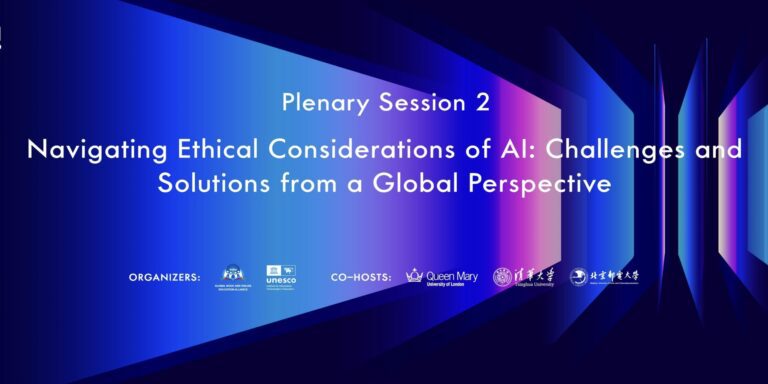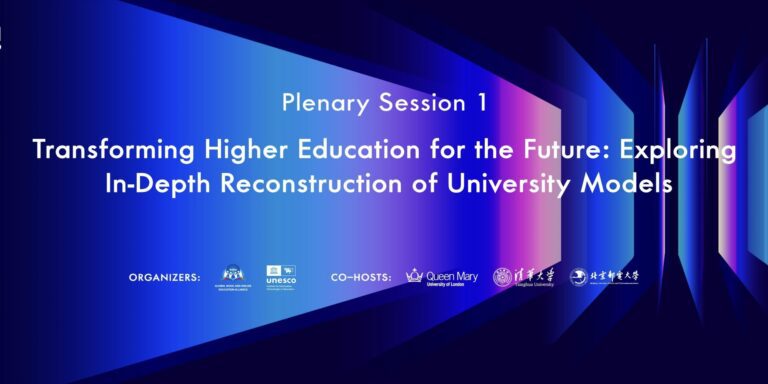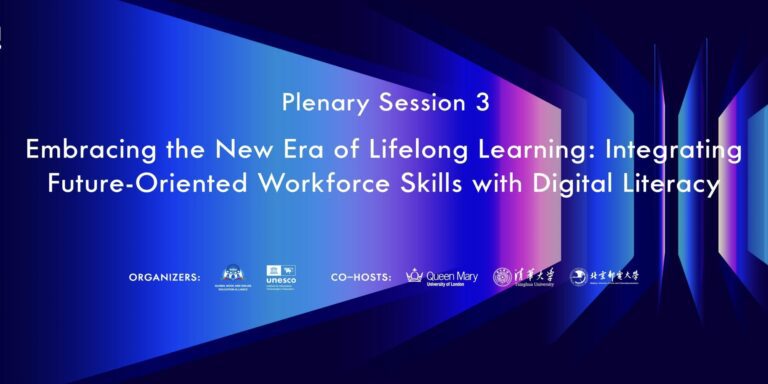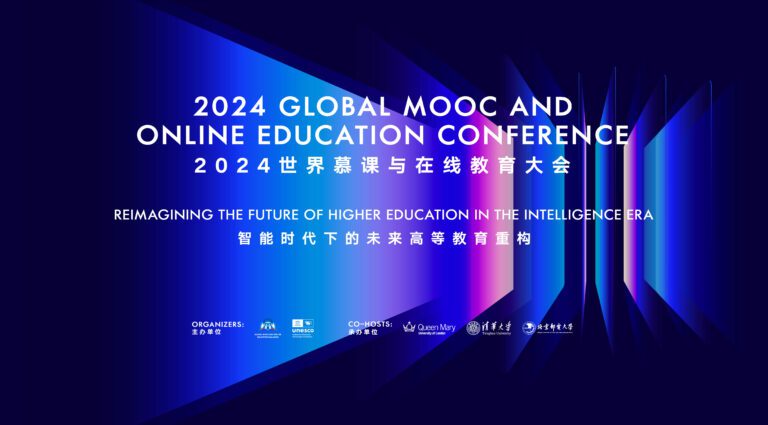The Plenary Session 4 of the 2024 Global MOOC and Online Education Conference, titled “Reshaping Teaching and Learning Paradigms with Technological Innovation: Transforming Skills-Centered and Practice-Based Learning,” was successfully held on the morning of December 13, 2024, London time. The session also featured the GMA Awards Winners Showcase. The conference was organized by the Global MOOC and Online Education Alliance and the UNESCO Institute for Information Technologies in Education, with Tsinghua University, Beijing University of Posts and Telecommunications, and Queen Mary University of London serving as co-hosts.
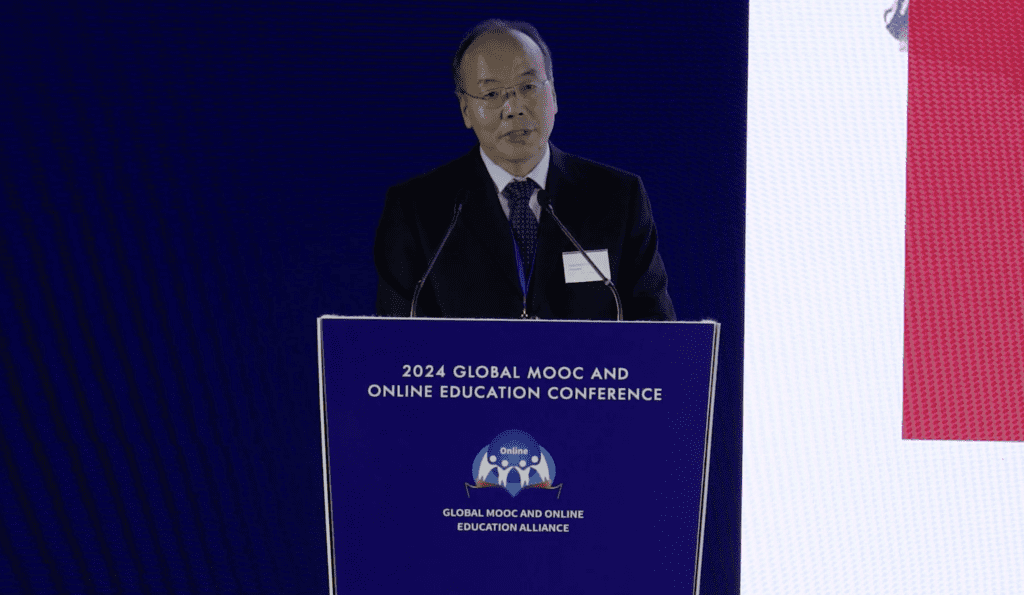
During the Keynote Presentations, Professor Liu Shouxun, Vice President of Communication University of China, shared the university’s insights and practices in artificial intelligence and digital transformation. He noted that AIGC technologies centered on large language models and multimodal large models are reshaping the media industry and higher education landscape. Communication University of China has implemented a comprehensive governance system by strengthening top-level design, establishing a solid technical foundation, creating integrated platforms, and enhancing governance capabilities, achieving innovations in education and teaching models.
Professor Wang Quan, Vice President of Xidian University, introduced the university’s exploration of new educational mechanisms and cultures in the digital era. He emphasized that talent training objectives are undergoing transformations across three dimensions with the changing times: from knowledge to competence, from short-term to long-term, and from regional to international. Xidian University has built a new ecology of smart education in the digital era by focusing on the advancement of “six new initiatives,” including new environments, new resources, new teaching, new evaluations, new training, and new governance, striving to build a benchmark university for AI+education in the new era of quality education.
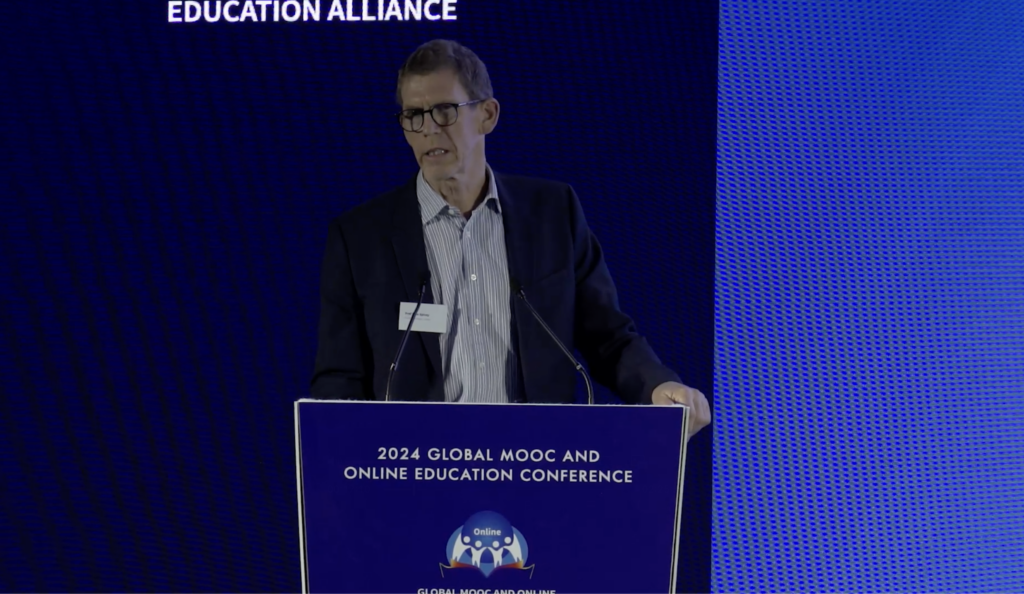
Professor Alan C. Spivey, Associate Provost and Professor of Chemistry at Imperial College London, presented an insightful overview of the college’s digital innovation and course development initiatives. He highlighted the pivotal roles of the AD Tech Lab and Media Lab in digital innovation and showcased popular online course projects that enhance students’ learning experiences. Through examples such as immersive virtual environments for medical training, gamified platforms for engineering, he showcased how these technologies enhance engagement and accessibility. Professor Spivey emphasized that such innovations not only enrich learning experiences but also prepare students to navigate a technology-driven future with creativity and adaptability.
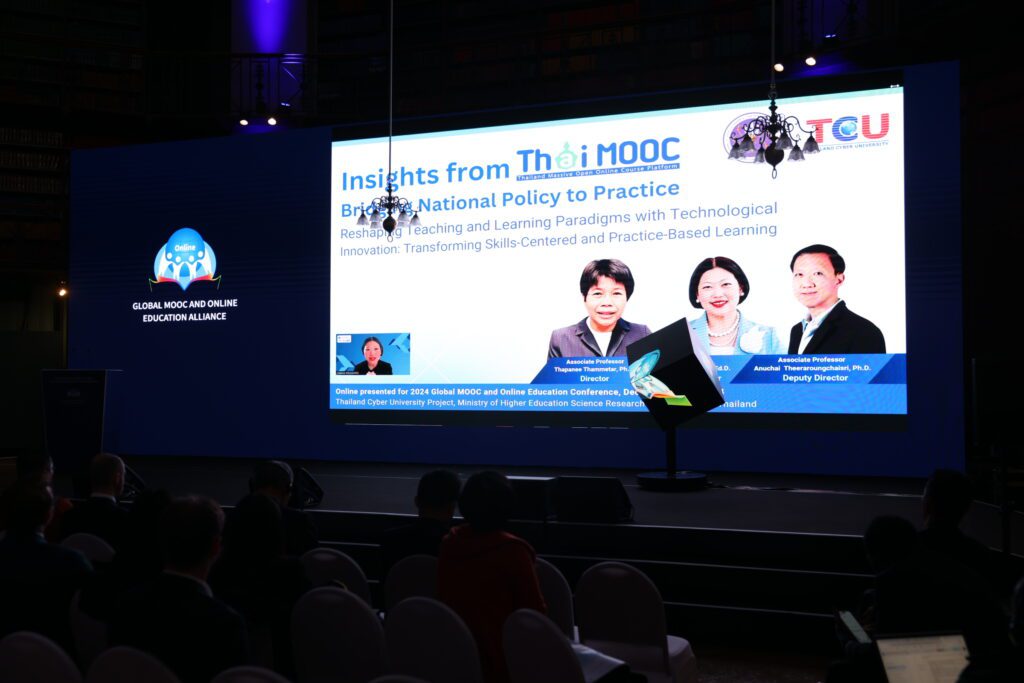
Professor Jintavee Khlaisang, Deputy Director of Thai MOOC, the national MOOC platform of Thailand, shared the achievements of MOOC learning and online education in Thailand. She mentioned that Thai MOOC has collaborated with multiple universities to develop MOOC courses, offering nearly 700 diverse courses and partnering with renowned global companies to develop AI-enabled educational content for students, fostering resource sharing. She expressed hopes for future collaborations with more institutions to establish long-term learning platforms and jointly promote lifelong learning.
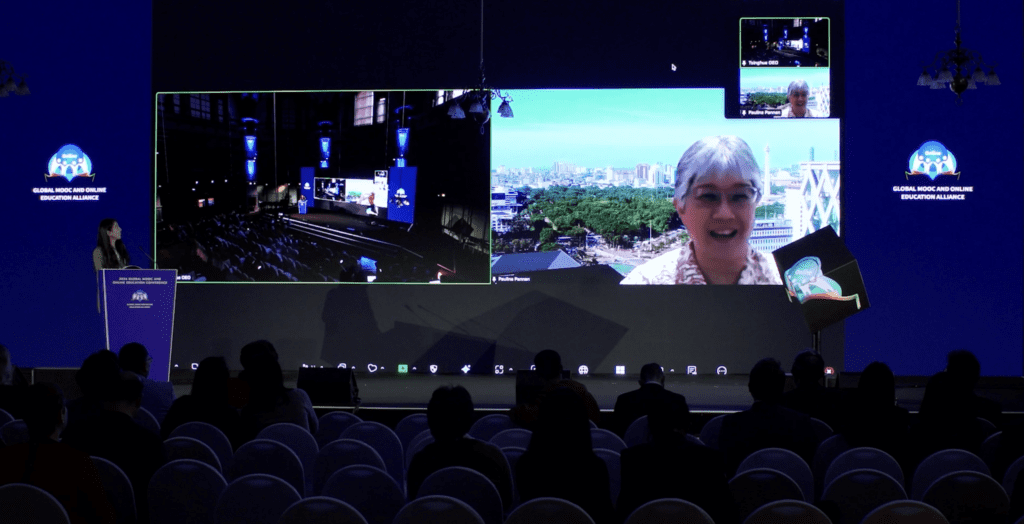
Professor Paulina Pannen, Founder of the Indonesia Cyber Education Institute, discussed the opportunities and challenges Indonesia faces in the digital transformation era. She introduced the resource, policy, and cooperation needs of higher education institutions and shared the Indonesian government’s strategies and policies in the field of digital learning. She believed that it is crucial to implement and integrate Indonesian government policies into teaching to provide better higher education in Indonesia.
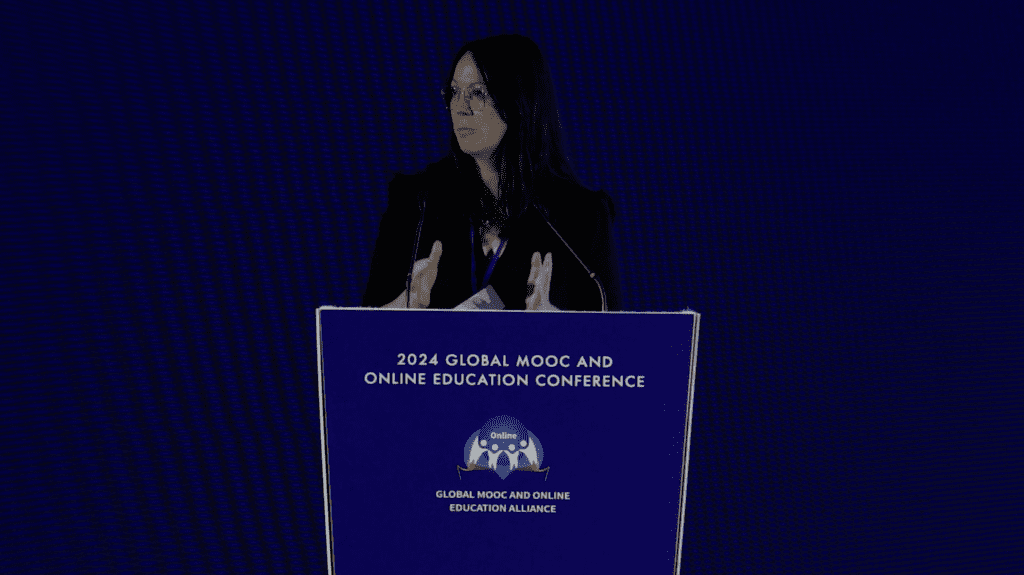
Professor Lesley Gourlay, Professor of Education at University College London, explored the impact of monitoring culture on education. She emphasized the need to consider not only the transformation and reform in the digital era but also how to enhance sustainability and responsible regulation. In the development of generative AI, a pragmatic approach should be taken to consider present and future needs.
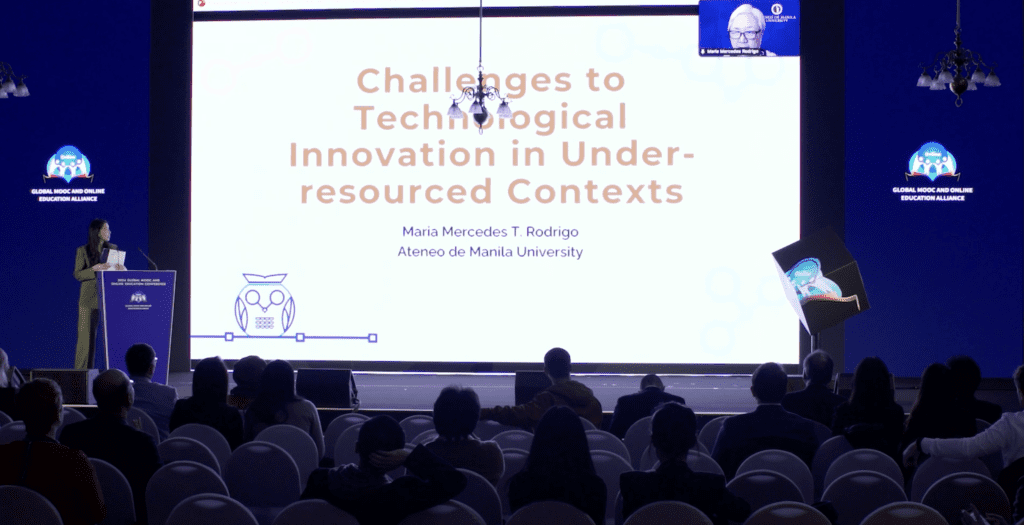
Dr. Maria Mercedes T. Rodrigo, Professor in the Department of Information Systems and Computer Science at Ateneo de Manila University, discussed the challenges faced by education in resource-scarce environments, including the lack of technological infrastructure, inadequate teacher training, and insufficient course content. She called for international cooperation and resource sharing to promote balanced educational development.
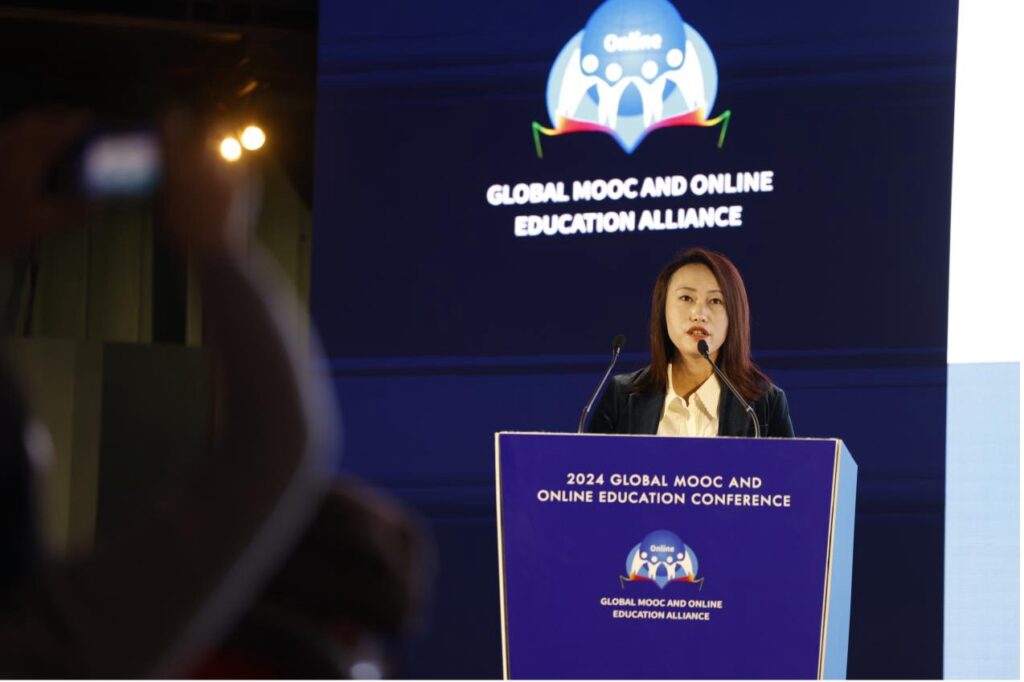
Professor Wu Dan, Dean of Undergraduate School of Wuhan University, shared Wuhan University’s advanced concepts and practical experience in the field of digital intelligence education. She introduced the “Five Numbers in One” idea of cultivating digital intelligence talents, and showed a case study of how to create practical training in digital intelligence education through the Digital Intelligence Experiment Innovation Teaching Platform. She emphasized that Wuhan University will continue to strengthen the practice and innovation of digital intelligence education, and continue to summarize and optimize it, so as to help the steady implementation of the Digital China strategy.
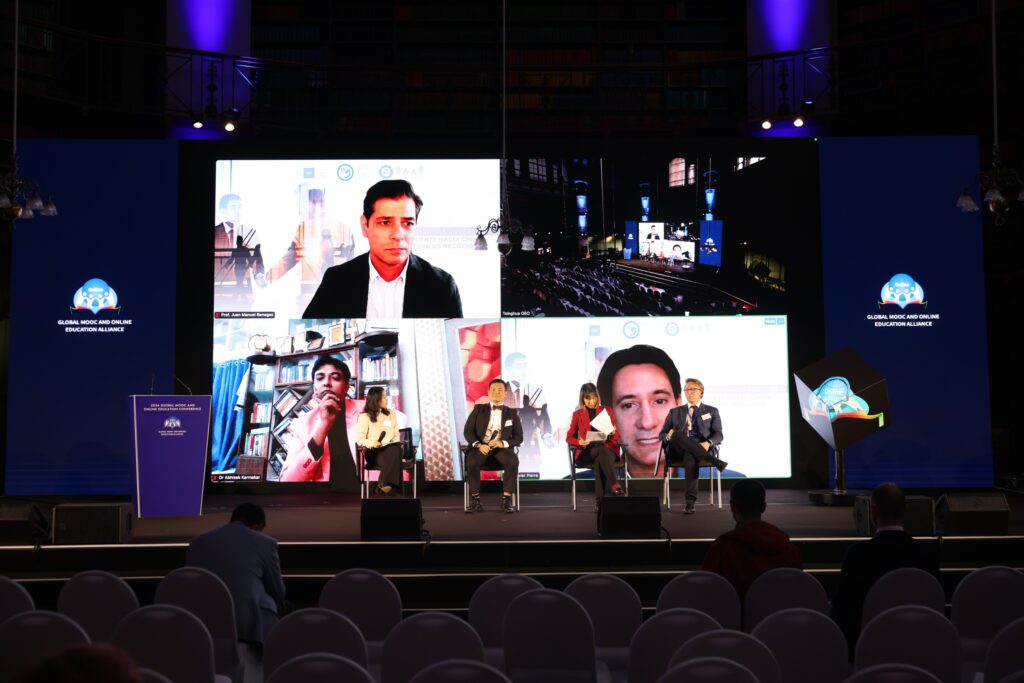
During the Panel Discussion, Abhisek Karmakar, Associate Professor in the Department of Political Science of Galsi Mahavidyalaya, West Bengal, India, Cindy Mi, Founder and CEO of VIPKID, Juan Manuel Benegas, Professor of National University of Córdoba and Javier Pierre, Professor of Philosophy, Faculty of Philosophy and Humanities at National University of Córdoba, Craig Dookie, Managing Director of London Medical Exchange, and Leonard Ng Wei Tat, Assistant Professor in the School of Materials Science & Engineering at Nanyang Technological University, exchanged ideas on how technological innovation is reshaping teaching and learning paradigms. They discussed the effectiveness of skills-centered and practice-based learning empowered by technology, explored the future of integrating skills-based learning with technology, and how technology can enhance the interactivity and personalization of education, fostering practical skills among students.
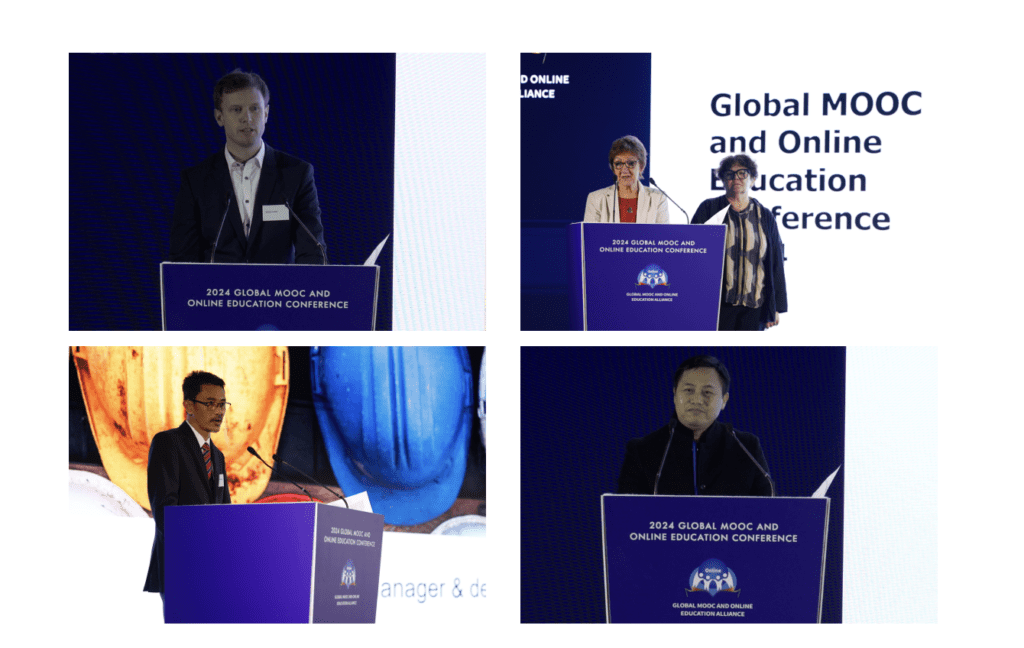
The Plenary Session also featured the GMA Awards Winners Showcase, where winners presented their course development ideas and characteristics. Experts attending the conference expressed that humanity can leverage technological tools to share quality educational resources. Global institutions should continue to strengthen cooperation in the future to jointly promote changes in the field of education and drive global progress.
The Keynote Presentations and Panel Discussion were moderated by Xu Shen, Deputy Director of the Online Education Center of Tsinghua University, and Li Hongru, Manager of the Global MOOC and Online Education Alliance, respectively.

